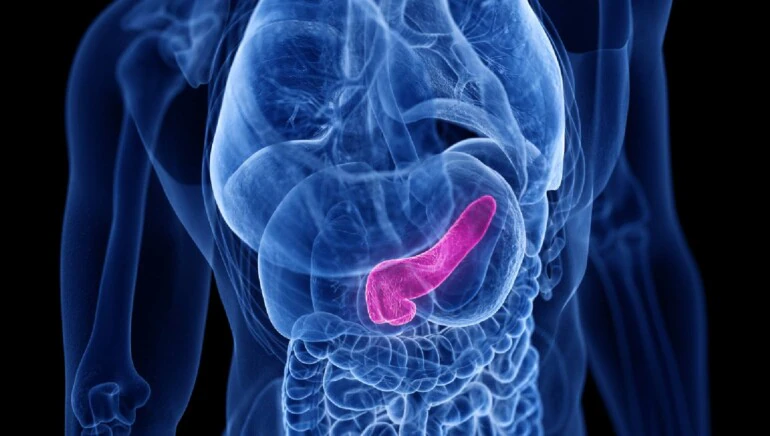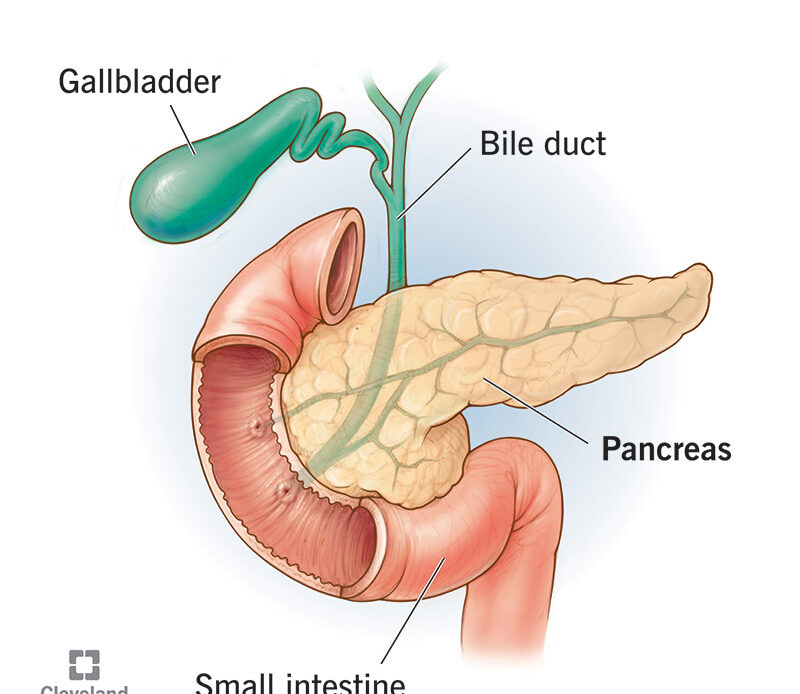
November is a month with health awareness campaigns, from diabetes to pancreatic cancer awareness. Today, we’re focusing on the pancreas — an often-overlooked but vital organ essential for digestion and blood sugar regulation.
Despite its small size, the pancreas plays a massive role in keeping your body balanced. Unfortunately, many people are unaware of the signs of pancreatic issues until the damage is severe. This article aims to raise awareness about spotting signs of pancreatic trouble and protecting this essential organ.
Read: COPD Awareness: Understanding the “Silent” Respiratory Condition
Signs You Might Be Damaging Your Pancreas

Recognizing early warning signs of pancreatic problems can help prevent severe complications. Here are the most common symptoms to watch out for:
1. Persistent Abdominal Pain: Pain in the upper abdomen that radiates to the back is a classic symptom of pancreatic issues, particularly pancreatitis. This pain often worsens after eating fatty foods and can become chronic if left untreated.
2. Digestive Problems: The pancreas produces enzymes needed to break down fats, proteins, and carbohydrates. When it’s not functioning properly, you might experience:
- Bloating or gas
- Diarrhea
- Oily, greasy stools that are difficult to flush
These symptoms indicate that your body isn’t absorbing nutrients effectively, which can lead to malnutrition.
3. Unexplained Weight Loss: Sudden, unintentional weight loss may occur if your pancreas struggles to produce digestive enzymes or insulin. This can signal chronic pancreatitis or even pancreatic cancer.
4. Blood Sugar Fluctuations: If the pancreas is damaged, it can’t regulate blood sugar properly. This may result in frequent episodes of high or low blood sugar, which could lead to diabetes. Watch for symptoms such as fatigue, excessive thirst, or frequent urination.
5. Yellowing of the Skin or Eyes (Jaundice): Jaundice is a potential sign of pancreatic obstruction, often caused by tumors or gallstones. A yellowish tint to your skin or eyes may be accompanied by dark urine and pale stools.
Read: Things You Should Know About Diabetes
How to Take Care of Your Pancreas
Preventing pancreatic damage starts with maintaining a healthy lifestyle. Here’s how you can protect this essential organ:

1. Adopt a Healthy Diet
- Focus on whole foods: Include fruits, vegetables, whole grains, and lean proteins.
- Limit unhealthy fats: Avoid fried, processed, and sugary foods that can stress your pancreas.
- Incorporate healthy fats: Use sources like olive oil, avocados, and nuts instead of trans or saturated fats.
2. Avoid Excessive Alcohol Consumption: Chronic alcohol use is a leading cause of pancreatitis and long-term pancreatic damage. Moderating or eliminating alcohol intake is one of the best ways to protect your pancreas.
3. Quit Smoking: Smoking increases the risk of pancreatic cancer and exacerbates inflammation. Quitting smoking benefits not only your pancreas but your overall health.
4. Stay Hydrated: Drinking plenty of water aids digestion and helps prevent gallstones, which can block pancreatic ducts.
5. Maintain Stable Blood Sugar Levels: For those with diabetes or prediabetes, keeping blood sugar levels under control is critical. Follow a balanced diet, exercise regularly, and take any prescribed medications to avoid overworking your pancreas.
6. Get Regular Check-Ups: Routine health check-ups can help detect pancreatic issues early. Discuss symptoms like digestive problems, unexplained pain, or significant weight changes with your healthcare provider.
When to Seek Medical Attention
Don’t ignore the following symptoms, as they could indicate serious pancreatic issues:
- Severe, unrelenting abdominal pain
- Persistent nausea or vomiting
- Unexplained jaundice
- Rapid, unexplained weight loss
If you experience any of these symptoms, consult a healthcare provider immediately for diagnosis and treatment. Early intervention is key to preventing further damage.
This November, as we observe health awareness campaigns, take a moment to reflect on the health of your pancreas. By learning the signs of pancreatic damage and taking proactive steps to protect this vital organ, you can significantly reduce the risk of serious complications.
Your pancreas may be small, but its role in your overall health is enormous—treat it with the care and attention it deserves.
